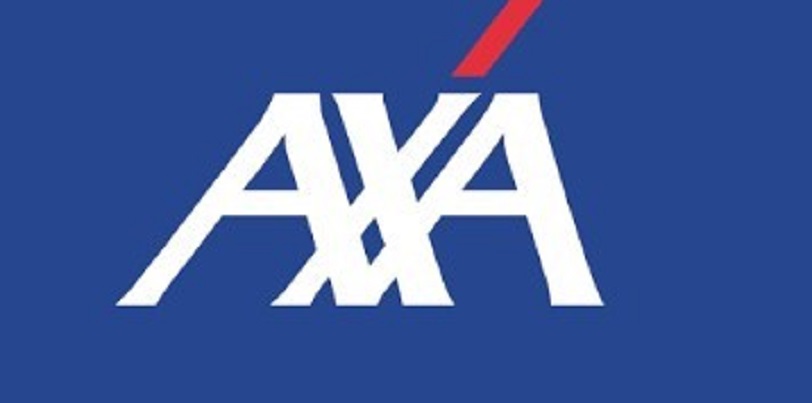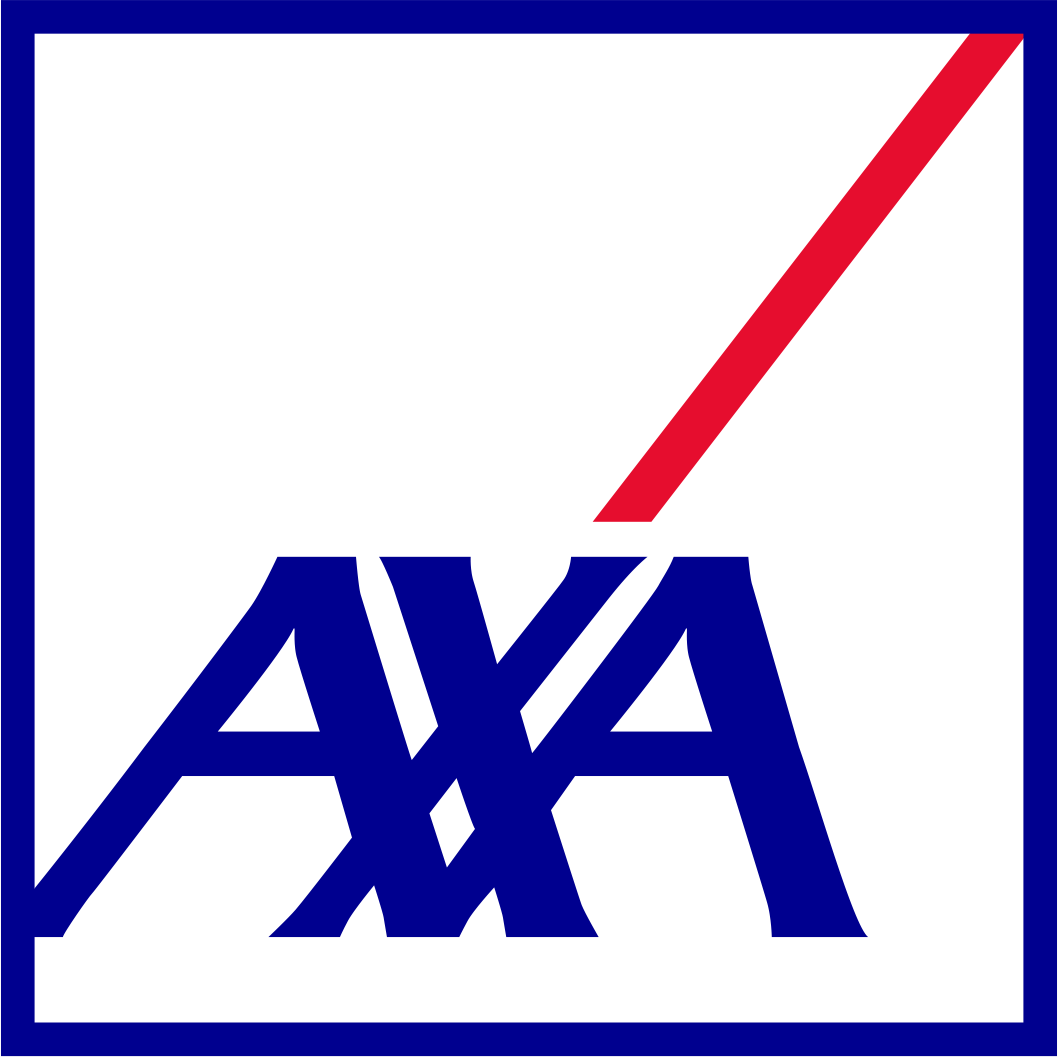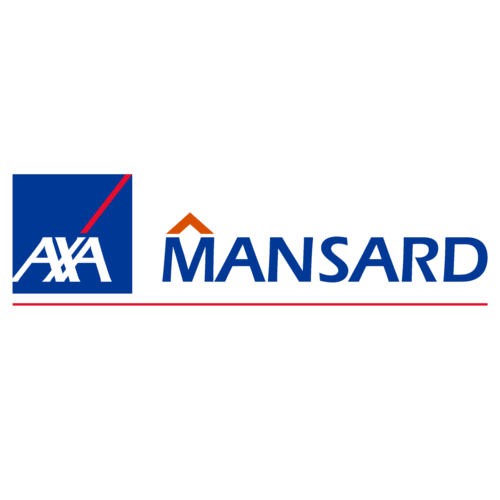Economy
AXA Mansard Insurance Grows Earnings by 12% After IFRS 17 Implementation

AXA Mansard Insurance plc, a member of the AXA Group, has recorded 12 per cent revenue growth for the second quarter ended June 30, 2023, following the implementation of the IFRS17 and IFRS9 accounting standards.
The accounting standard became effective on January 1, 2023. consequently, gross earned premiums (Insurance revenues) become the principal revenue indicator given the change in accounting standard
The commercial activity of insurance operations will now be reported using insurance (earned) revenues as against gross written premiums (GWP). The reinsurance expenses will now also be reflected as “net expenses from reinsurance contracts held” with the main difference from what was previously reported being the netting of commissions received and claims recoveries from assumed reinsurance businesses. For asset management, commercial activity continues to be measured on revenues.
Commenting on the results, the Chief Financial Officer, Mrs Ngozi Ola-Israel, said, “In the first half of the year, we grew Gross Written premiums by 22%, delivering insurance revenue growth of 12% from N34.7 billion to N39.0 billion despite our challenging and evolving economic environment, particularly in the second quarter of the year.
“This performance further reinforces our resilience and capacity to produce sustainable results even in a challenging business environment. Our operating performance also improved significantly, with PBT growth of 528 per cent to 14.8 billion from 2.4 billion last year, owing to significant improvement in the P&C and L&S segments, net FX gains from devaluation effect as well as the significant recovery from the health segment.”
Commenting on AXA Mansard’s financials at the end of the first half of 2023, the Chief Executive Officer of AXA Mansard Insurance, Kunle Ahmed, said, “We are proud to retain the trust of customers, brokers, and partners despite the challenging economic environment.
According to him, “The outstanding performance demonstrates our dedication to ensuring sustainable growth in the face of this environment as we achieved improved revenue and operating performance in the first half of the year.
“With our focus on resilience, we will remain an exceptional insurer with great financial strength, excellent underwriting capabilities, and efficient claims management processes.
“However, looking forward to the second half of the year, we are optimistic about the opportunities for our business through improved processes with our technical and digital capabilities while prioritizing our customer-centricity, growth, and profitability.”
The underwriter said that the insurance revenues improved by 12 per cent YoY (39.0 billion vs 34.7 billion). Growth is driven by Health (+27%) and L&S (+23%), partly offset by a P&C decline of 5 per cent due to a change in the timing of booking of key business in the current period vs this time last year.
The life and health business recorded growth resulting from improved customer retention, increased share of existing business, and the acquisition of new businesses.
Gross revenues: grew 22 per cent YoY (N54.8 billion vs N45.0 billion).
Improved performance is due to our ability to acquire new businesses as well as our improving retention rates. Growth is spurred by Health (+26%), L&S (+20%), and P&C (+19%). P&C volumes performance is attributable to improved performance in the commercial lines growing by 19 per cent YoY.
Life volume acceleration is driven by the impacts of the new life savings product. Health volumes improve owing to increased premiums from re-pricing and renewal of key businesses.
P&C improves 19 per cent YoY due to strong performance in the Oil & Energy portfolio, which grows by 21% and is partially offset by declines in Aviation and Marine due to changes in the structure of key businesses.
Growth is also driven by improved performance in personal lines as well as increased premiums on strong renewals and new businesses. The focus remains on maintaining efficiency to ensure the growth and profitability of all our portfolios.
L&S segment grows 20 per cent YoY owing to improved performance in individual life business (+59%) which is partly offset by the 1% dip in group life due to delayed renewals of key businesses. Growth in the individual life portfolio is largely driven by the impact of the increase in customers onboarded and increased volumes from protection with the new life savings products. In addition, improved agent productivity has also contributed to the growth in revenues.
Total revenues improved 14% YoY, with higher management fees benefiting from improved 3rd party assets under management. Own AuMs improved by 25%, with 3rd party client count growing by 18%, leading to a 30% growth in 3rd party AuMs and a 28% growth in total AuMs.
Overall, PBT significantly improved by 528% YoY owing to 346% growth in P&C profits and significant growth in the health business, which is partly offset by a 37% dip in the life business. 346% growth in P&C is attributable to improved revenues and underwriting performance, as well as fair value gains. The dip in the life business is driven by increased claims experienced during the period compared to last year and partly offset by reduced underwriting expenses and higher investment margins. The health business continues with its recovery to deliver a N3.5bn profit owing to higher volumes, improved claims management, and operating efficiency.
Shareholder’s fund stood at N41.4 billion, growing by 40 per cent from N29.7bn in FY22 driven by profits in H1 and by fair value gains.
Return on Shareholder’s Equity (ROE) improved by 33.8 percentage points from 7.7 per cent prior year to 41.5% owing to the improved performance in the business. The operating performance of the group increased by 528% (N14.8bn from N2.4bn LY) while average shareholder’s equity also grew 16% (N35.6 from N30.7bn LY) owing to changes in fair value reserves. As a group, we remain committed to providing value to our shareholders.
Return on Assets (ROA) improved by 9.9 percentage points up to 12.0% from 2.1% when compared with the prior year. The growth indicates efficient asset utilization towards improved PBT growth of 528% (N14.8bn from N2.4bn LY). The average asset has also increased by 10% (N123.0bn from N111.9bn LY) owing to an improved asset base (near cash and insurance contracts assets) as we continue to consolidate on financial strength during the year.
Economy
Tinubu Okays Extension of Ban on Raw Shea Nut Export by One Year

By Aduragbemi Omiyale
The ban on the export of raw shea nuts from Nigeria has been extended by one year by President Bola Tinubu.
A statement from the Special Adviser to the President on Information and Strategy, Mr Bayo Onanuga, on Wednesday disclosed that the ban is now till February 25, 2027.
It was emphasised that this decision underscores the administration’s commitment to advancing industrial development, strengthening domestic value addition, and supporting the objectives of the Renewed Hope Agenda.
The ban aims to deepen processing capacity within Nigeria, enhance livelihoods in shea-producing communities, and promote the growth of Nigerian exports anchored on value-added products, the statement noted.
To further these objectives, President Tinubu has authorised the two Ministers of the Federal Ministry of Industry, Trade and Investment, and the Presidential Food Security Coordination Unit (PFSCU), to coordinate the implementation of a unified, evidence-based national framework that aligns industrialisation, trade, and investment priorities across the shea nut value chain.
He also approved the adoption of an export framework established by the Nigerian Commodity Exchange (NCX) and the withdrawal of all waivers allowing the direct export of raw shea nuts.
The President directed that any excess supply of raw shea nuts should be exported exclusively through the NCX framework, in accordance with the approved guidelines.
Additionally, he directed the Federal Ministry of Finance to provide access to a dedicated NESS Support Window to enable the Federal Ministry of Industry, Trade and Investment to pilot a Livelihood Finance Mechanism to strengthen production and processing capacity.
Shea nuts, the oil-rich fruits from the shea tree common in the Savanna belt of Nigeria, are the raw material for shea butter, renowned for its moisturising, anti-inflammatory, and antioxidant properties. The extracted butter is a principal ingredient in cosmetics for skin and hair, as well as in edible cooking oil. The Federal Government encourages processing shea nuts into butter locally, as butter fetches between 10 and 20 times the price of the raw nuts.
The federal government said it remains committed to policies that promote inclusive growth, local manufacturing and position Nigeria as a competitive participant in global agricultural value chains.
Economy
NASD Bourse Rebounds as Unlisted Security Index Rises 1.27%

By Adedapo Adesanya
The NASD Over-the-Counter (OTC) Securities Exchange expanded for the first session this week by 1.27 per cent on Wednesday, February 25.
This lifted the NASD Unlisted Security Index (NSI) above 4,000 points, with a 50.45-point addition to close at 4,025.25 points compared with the previous day’s 3,974.80 points, as the market capitalisation added N30.19 billion to close at N2.408 trillion versus Tuesday’s N2.378 trillion.
At the trading session, FrieslandCampina Wamco Nigeria Plc grew by N5.00 to trade at N100.00 per share compared with the previous day’s N95.00 per share, Central Securities Clearing System (CSCS) Plc improved by N4.18 to sell at N70.00 per unit versus N65.82 per unit, and First Trust Mortgage Bank Plc increased by 14 Kobo to trade at N1.59 per share compared with the previous day’s N1.45 per share.
However, the share price of Geo-Fluids Plc depreciated by 27 Kobo at midweek to close at N3.27 per unit, in contrast to the N3.30 per unit it was transacted a day earlier.
At the midweek session, the volume of securities went down by 25.3 per cent to 8.7 million units from 11.6 million units, the value of securities decreased by 92.5 per cent to N80.7 million from N1.2 billion, and the number of deals slipped by 33.3 per cent to 32 deals from the preceding session’s 48 deals.
At the close of business, CSCS Plc remained the most traded stock by value on a year-to-date basis with 34.1 million units exchanged for N2.0 billion, trailed by Okitipupa Plc with 6.3 million units traded for N1.1 billion, and Geo-Fluids Plc with 122.0 million units valued at N478.0 million.
Resourcery Plc ended the trading session as the most traded stock by volume on a year-to-date basis with 1.05 billion units valued at N408.7 million, followed by Geo-Fluids Plc with 122.0 million units sold for N478.0 million, and CSCS Plc with 34.1 million units worth N2.0 billion.
Economy
Investors Lose N73bn as Bears Tighten Grip on Stock Exchange

By Dipo Olowookere
The bears consolidated their dominance on the Nigerian Exchange (NGX) Limited on Wednesday, inflicting an additional 0.09 per cent cut on the market.
At midweek, the market capitalisation of the domestic stock exchange went down by N73 billion to N124.754 trillion from the preceding day’s N124.827 trillion, and the All-Share Index (ASI) slipped by 114.32 points to 194,370.20 points from 194,484.52 points.
A look at the sectoral performance showed that only the consumer goods index closed in green, gaining 1.19 per cent due to buying pressure.
However, sustained profit-taking weakened the insurance space by 3.79 per cent, the banking index slumped by 2.07 per cent, the energy counter went down by 0.24 per cent, and the industrial goods sector shrank by 0.22 per cent.
Business Post reports that 25 equities ended on the gainers’ chart, and 54 equities finished on the losers’ table, representing a negative market breadth index and weak investor sentiment.
RT Briscoe lost 10.00 per cent to sell for N10.35, ABC Transport crashed by 10.00 per cent to N6.75, SAHCO depreciated by 9.98 per cent to N139.35, Haldane McCall gave up 9.93 per cent to trade at N3.99, and Vitafoam Nigeria decreased by 9.93 per cent to N112.50.
Conversely, Jaiz Bank gained 9.95 per cent to settle at N14.03, Okomu Oil appreciated by 9.93 per cent to N1,765.00, Trans-nationwide Express chalked up 9.77 per cent to close at N2.36, Fortis Global Insurance moved up by 9.72 per cent to 79 Kobo, and Champion Breweries rose by 5.39 per cent to N17.60.
Yesterday, 1.4 billion shares worth N46.2 billion were transacted in 70,222 deals compared with the 1.1 billion shares valued at N53.4 billion traded in 72,218 deals a day earlier, implying a rise in the trading volume by 27.27 per cent, and a decline in the trading value and number of deals by 13.48 per cent and 2.76 per cent, respectively.
Fortis Global Insurance ended the session as the busiest stock after trading 193.7 million units for N152.7 million, Zenith Bank transacted 120.7 million units worth N11.1 billion, Japaul exchanged 114.8 million units valued at N407.0 million, Ellah Lakes sold 98.4 million units worth N999.2 million, and Access Holdings traded 63.1 million units valued at N1.7 billion.
-

 Feature/OPED6 years ago
Feature/OPED6 years agoDavos was Different this year
-
Travel/Tourism10 years ago
Lagos Seals Western Lodge Hotel In Ikorodu
-

 Showbiz3 years ago
Showbiz3 years agoEstranged Lover Releases Videos of Empress Njamah Bathing
-

 Banking8 years ago
Banking8 years agoSort Codes of GTBank Branches in Nigeria
-

 Economy3 years ago
Economy3 years agoSubsidy Removal: CNG at N130 Per Litre Cheaper Than Petrol—IPMAN
-

 Banking3 years ago
Banking3 years agoSort Codes of UBA Branches in Nigeria
-

 Banking3 years ago
Banking3 years agoFirst Bank Announces Planned Downtime
-

 Sports3 years ago
Sports3 years agoHighest Paid Nigerian Footballer – How Much Do Nigerian Footballers Earn



















Pingback: AXA Mansard Insurance Grows Earnings by 12% After IFRS 17 Implementation – African Budget Bureau